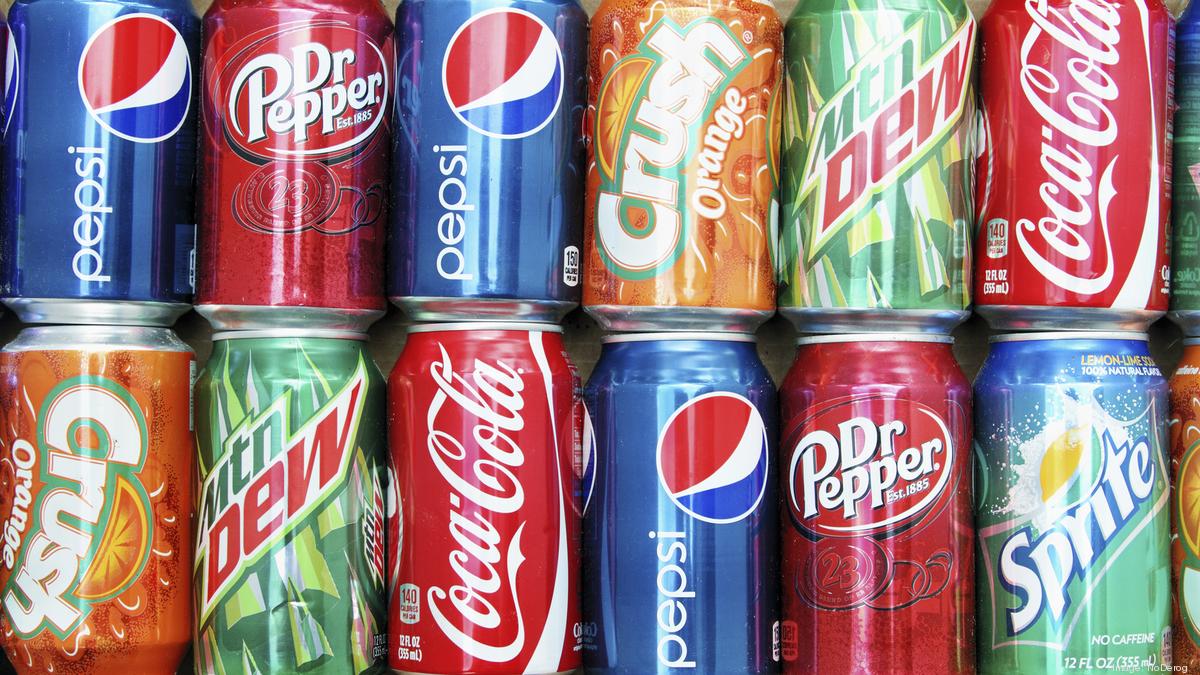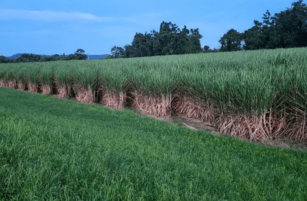- Being overweight appears to increase the risk of having severe COVID symptoms.
- Governments around the world may therefore increase the size and scope of their sugar taxes.
- Ensuring food is affordable during the pandemic is more important than sugar taxation, but priorities may soon change.
Weight Emerges as a COVID Risk Factor
- When COVID first emerged in early 2020, a major symptom was a cough/breathlessness, sometimes leading to pneumonia or acute respiratory distress syndrome.
- Doctors assumed COVID was a respiratory disease and the treatment of critically ill patients focussed on increasing blood oxygen levels, often through ventilation.
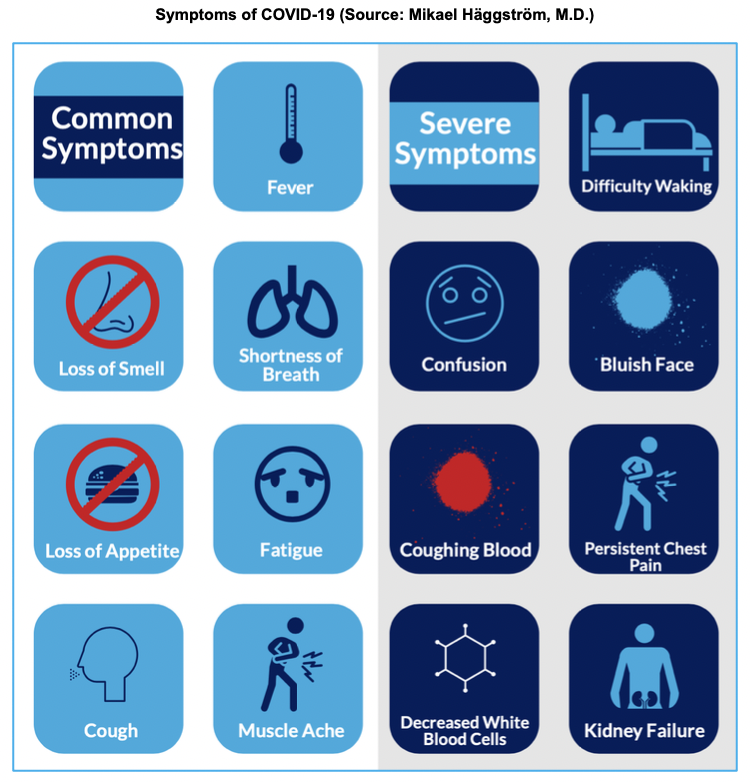
- It now seems that COVID can also lead to increased risk of strokes, organ damage (notably heart, liver and kidneys as well as lungs), excessive clotting, and septic shock.
- People with underlying health conditions seem to have worse COVID outcomes than those without.
- One such underlying condition is being overweight.
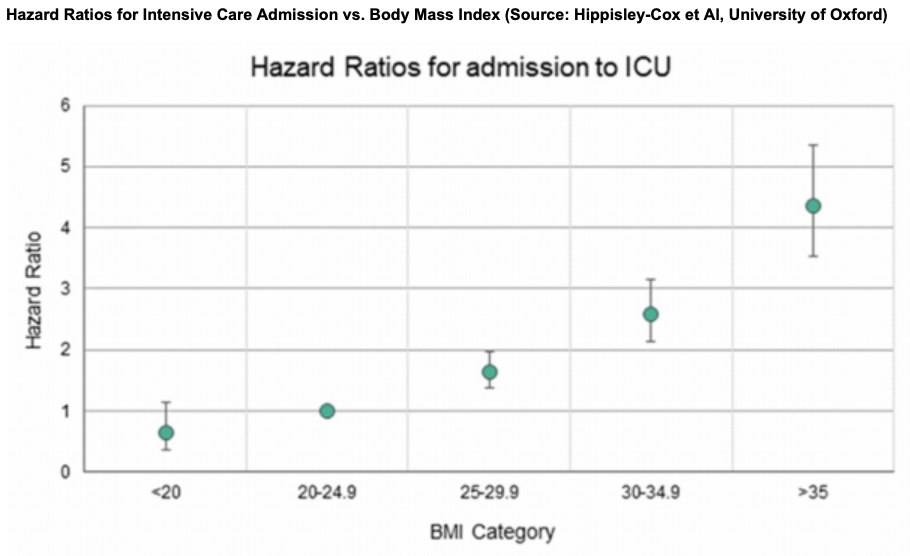
- Public Health England has carried out a review of existing COVID studies and concluded that being overweight increases the risk of serious illness and death.
- UK government statistics show that nearly 8% of critically ill patients in intensive care units with the virus are morbidly obese, compared with 2.9% of the general population.
- The World Obesity Federation are also concerned that obese patients are harder to treat effectively:
- They are more difficult to intubate;
- It can be more challenging to obtain diagnostic imaging as there are weight limits on imaging machines;
- Patients are more difficult to position and transport for nursing staff.
- We think governments around the world will seek new ways to improve the health of their populations.
- This means the battle against sugar and fat in food and drinks will intensify.
The Squeeze on Sugar Continues
- We are already seeing the first tentative steps being taken in the United Kingdom.
- David Cameron’s government had commissioned a study on how to reduce obesity in 2016.
- But he abruptly left office after the UK voted to leave the European Union and Theresa May’s government did not carry out many of the recommendations made by the study.
- Boris Johnson’s government has revisited the study in July 2020, perhaps influenced by Johnson’s own treatment in intensive care for COVID.
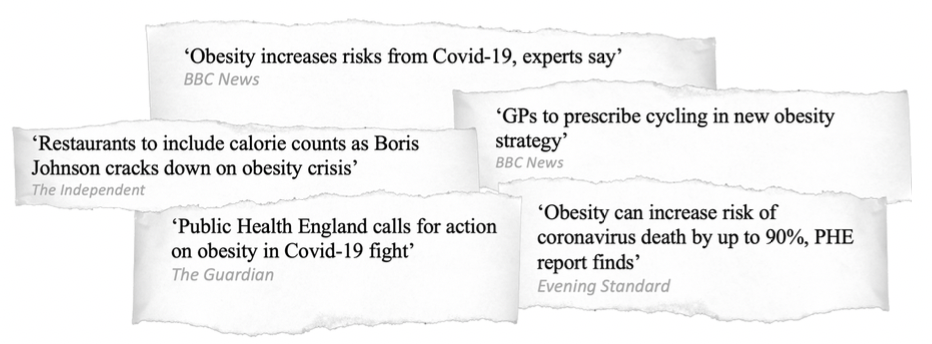
- New measures are now being proposed:
- A ban on TV and online adverts for food high in fat, sugar, and salt before 9pm.
- Limits on in-store promotions for unhealthy foods.
- Calorie labelling on restaurant menus and alcoholic drinks.
- At this stage, the UK government is not making changes to its existing sugar tax, which is applied only to sugar-sweetened beverages.
- But we fear this might change in the coming months.
Sugar Taxes: More Countries?
- Even before coronavirus arrived, sugar taxes had been increasing in popularity.
- Since 2014, at least 24 countries have introduced some form of sugar tax.
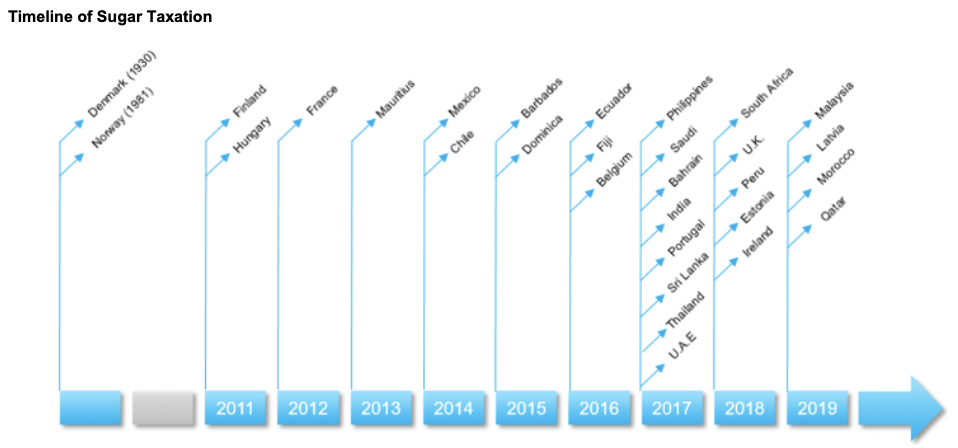
- The aim had been to improve population health, and with COVID this becomes even more urgent.
- We therefore expect more countries to apply taxes on sugary foods in the coming months.
Sugar Taxes: Increased Scope?
- We also expect countries that have sugar taxes in place to widen their scope.
- For example, in the UK, the tax only applies to sugar-sweetened beverages but may be expanded to cover baked goods and confectionery.

- This may pose problems for major food and beverage companies.
- Sugar doesn’t just provide sweetness; it also has other uses which make it a valuable ingredient.
- For example, it acts as a preservative, provides bulk and an attractive texture, and caramelises when heated.
- It’s not going to be easy for companies to reformulate their food products to avoid sugar taxes in the way they could for sugar-sweetened beverages.
Sugar Taxes: Increased Size?
- We also think the taxes may be increased in size.
- Currently, the UK sugar tax is much lower than other comparative sin taxes.

- But many governments around the world have spent heavily to keep economies afloat during COVID-induced lockdowns in 2020.
- At its peak, around 25% of the British workforce was furloughed and so receiving 80% of their normal wage from the government rather than their employers.
- These governments have been able to take advantage of near-zero interest rates to fund their expenditure, but increased taxation also seems likely in the future.
Sugar Taxes: When?
- We don’t expect these changes to happen quickly.
- Governments are extremely sensitive to the cost of food given the economic damage inflicted by the response to COVID, including widespread job losses.
- We therefore don’t expect major changes to sugar taxation in the short-term.
- There will be plenty of time for the debate around sugar taxes to intensify as we move into 2021 and beyond.
